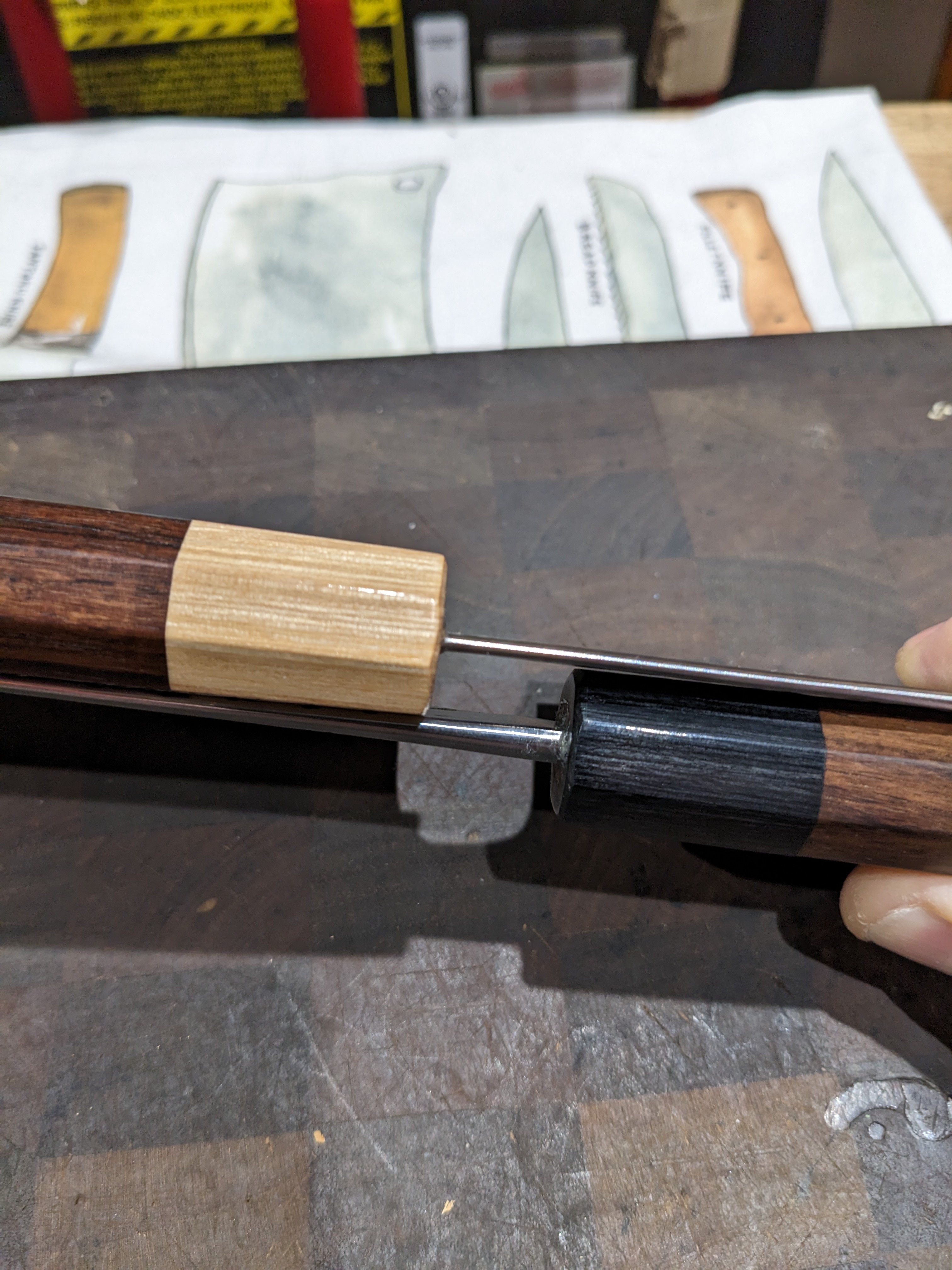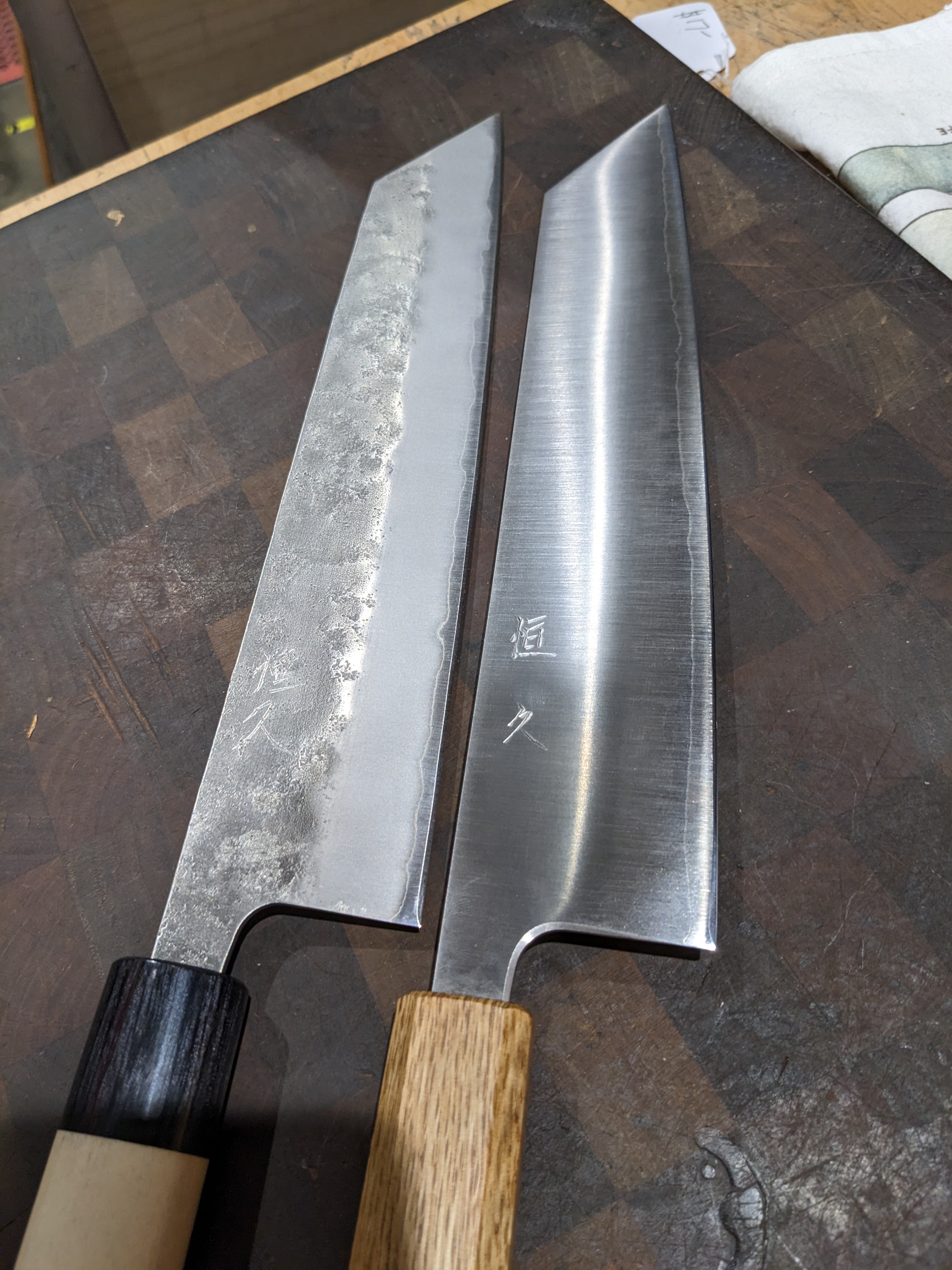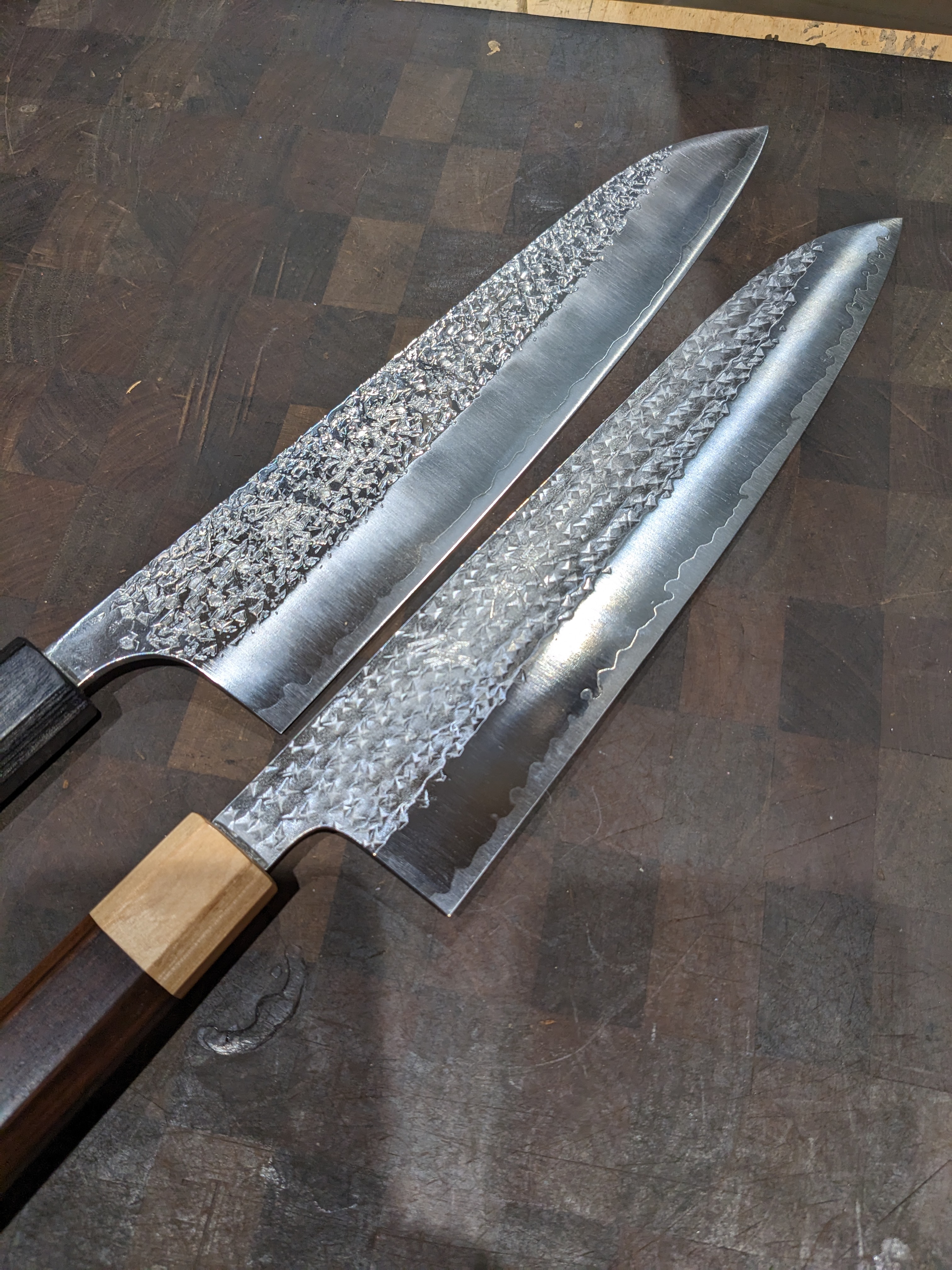Are Hand-Forged Kitchen Knives Better?
Posted by Derek Swanson on 26th Jan 2023
Hand-forged kitchen knives can be considered better in certain aspects, but it depends on what you are looking for in a knife. Here are a few things to consider:
- Quality and durability: Hand-forged knives are often made by skilled craftsmen using traditional techniques, which can result in a higher level of quality and durability compared to mass-produced non-forged knives.
- Unique design: Hand-forged knives are often one-of-a-kind and can have a unique design, which can be a selling point for some people.
- Sharpness and Edge Retention: Hand-forged knives are often made from high-quality steel which can result in sharper edges and better edge retention than non-forged knives.
- Cost: Hand-forged knives can be more expensive than non-forged knives due to the time and skill required to make them.
However, it is important to note that some non-forged knives can still be of high quality, and that a hand-forged knife is not always better than a non-forged knife. It's always best to test it out and decide what works best for you.
What is the difference between hand-forged knives versus non-forged knives?
Hand-forged knives are made by a blacksmith using traditional techniques, such as hammering and heating the steel to shape it. Non-forged knives, on the other hand, are typically made using modern manufacturing methods, such as stamping or precision casting. Hand-forged knives are generally considered to be of higher quality and durability, as they are made by skilled craftsmen and are often made from higher-quality materials. They may also have a unique, one-of-a-kind look and feel. In contrast, non-forged knives are often mass-produced and may not have the same level of craftsmanship or durability. In the picture below, can you tell which is hand-forged to shape and which is cut from a sheet?
How Can You Tell the Difference?

With hand-forged blades such as the one on the bottom in this photo, the tang portion of the steel is usually much thicker than that of non-forged blades. Both these knives are made from the same type of steel from the same factory, Kurosaki Knives in Echizen, Japan. With regard to edge retention and sharpness, most users would not be able to tell the difference between the two. The hand-forged knife costs about $100 more because of the additional labor costs of forging. To many people, that additional cost is worth it for the sake of owning a knife forged by a famous Japanese blacksmith.
Why are hand-forged knives more expensive?
Hand-forged knives are more expensive than non-forged knives for a few reasons:
- Labor: Hand-forging a knife requires a skilled blacksmith to shape the steel using traditional techniques, such as hammering and heating. This process takes more time and skill compared to mass-producing knives using modern manufacturing methods.
- Materials: High-quality steel is often used in hand-forged knives, which can be more expensive than the steel used in mass-produced knives. Additionally, some hand-forged knives may include unique or rare materials, such as natural handle materials, which can add to the cost.
- Limited production: Hand-forged knives are often made in small batches or even as one-of-a-kind pieces, resulting in a limited supply and higher demand, hence the cost.
- Branding: Some hand-forged knives are made by well-known blacksmiths or artisanal knife makers, and their reputation, branding, and marketing will reflect on the final price.
In summary, the process of hand-forging a knife is more time-consuming and requires a higher level of skill and materials, which ultimately drives up the cost. However, many people are willing to pay a higher price for a hand-forged knife due to its unique design, durability, and the craftsmanship that goes into making it.
Is It Possible to Buy a Hand-Forged Knife for Under $200
Chef knives from famous blacksmiths such as Fujiwara and Saji usually start at a few hundred dollars. The Hokiyama factory in Tosa, Japan, employs an OEM model that allows them to produce top-tier blades at the most reasonable prices. While most of their knives are stock-reduction, their factory label Tsunehisa knives offer a few lines that are hand-forged by unnamed local blacksmiths. Many of these knives can be found for less than $200.
Pictured below are two Tsunehisa chef knives made from Ginsan steel. One blade is hand-forged to shape, the other was cut from a sheet of roll-forged steel.


